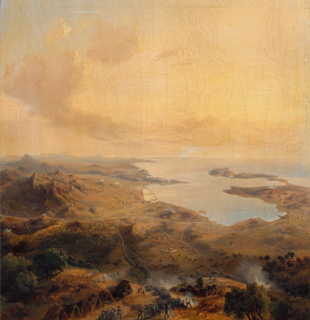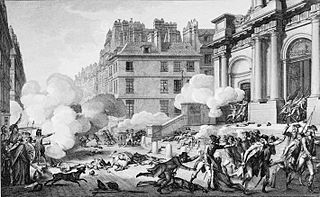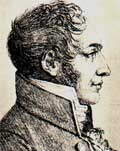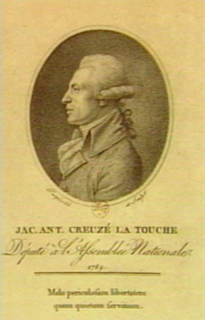| François Aubry | |
|---|---|
| Born | 12 December 1747 Paris, France |
| Died | 17 July 1798 (aged 50) Demerara, Dutch Guiana |
| Nationality | French |
| Occupation | Soldier, politician |
| Known for | Member of the National Convention |
François Aubry (12 December 1747 – 17 July 1798) was a French soldier who became a member of the National Convention of France and the Council of Five Hundred during the French Revolution. At first a moderate supporter of the revolution, he moved towards a monarchical position and worked to overthrow the Directory. When the Directory seized power, he was arrested and deported to Cayenne. He escaped, but died in Dutch Guiana soon after.
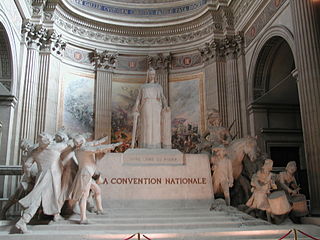
The National Convention was the first government of the French Revolution, following the two-year National Constituent Assembly and the one-year Legislative Assembly. Created after the great insurrection of 10 August 1792, it was the first French government organized as a republic, abandoning the monarchy altogether. The Convention sat as a single-chamber assembly from 20 September 1792 to 26 October 1795.

France, officially the French Republic, is a country whose territory consists of metropolitan France in Western Europe and several overseas regions and territories. The metropolitan area of France extends from the Mediterranean Sea to the English Channel and the North Sea, and from the Rhine to the Atlantic Ocean. It is bordered by Belgium, Luxembourg and Germany to the northeast, Switzerland and Italy to the east, and Andorra and Spain to the south. The overseas territories include French Guiana in South America and several islands in the Atlantic, Pacific and Indian oceans. The country's 18 integral regions span a combined area of 643,801 square kilometres (248,573 sq mi) and a total population of 67.3 million. France, a sovereign state, is a unitary semi-presidential republic with its capital in Paris, the country's largest city and main cultural and commercial centre. Other major urban areas include Lyon, Marseille, Toulouse, Bordeaux, Lille and Nice.

The Council of Five Hundred, or simply the Five Hundred, was the lower house of the legislature of France under the Constitution of the Year III. It existed during the period commonly known as the Directory (Directoire), from 26 October 1795 until 9 November 1799: roughly the second half of the period generally referred to as the French Revolution.

